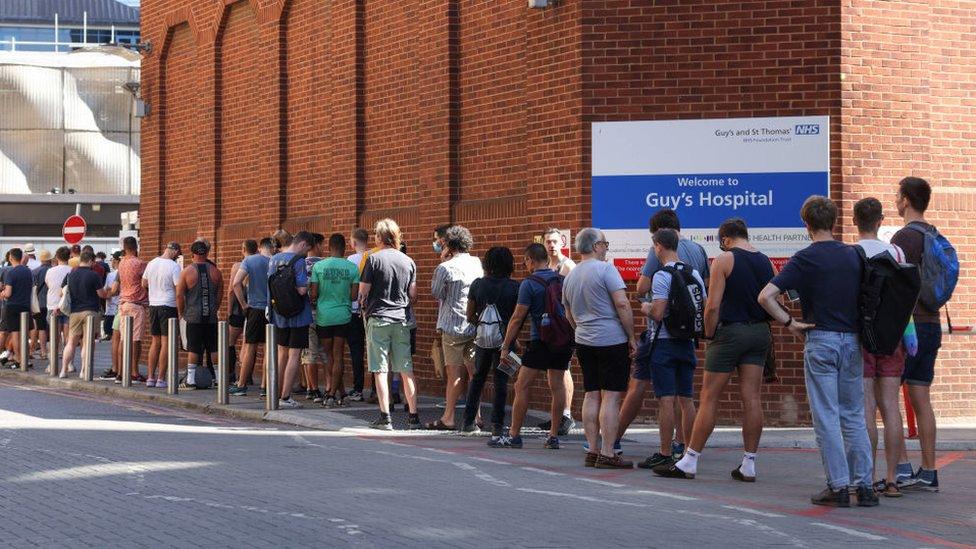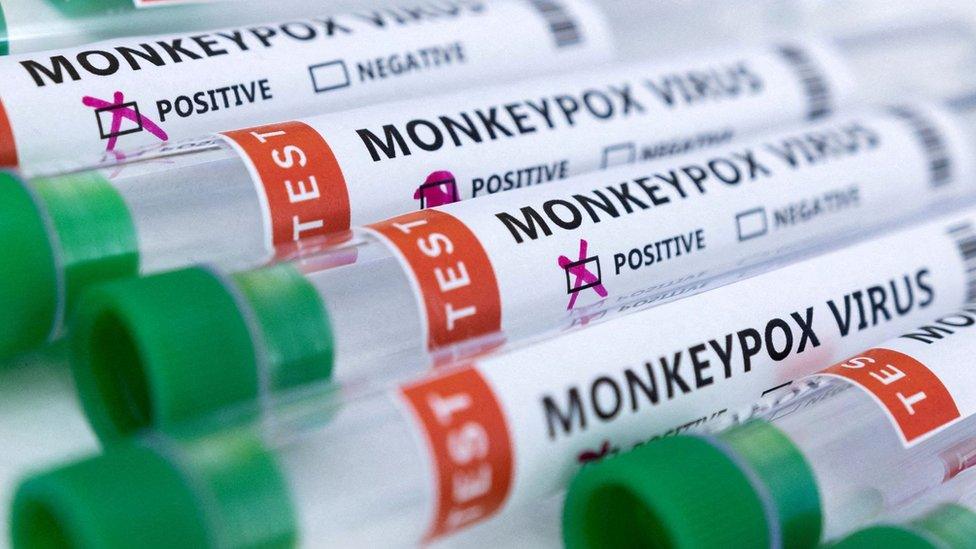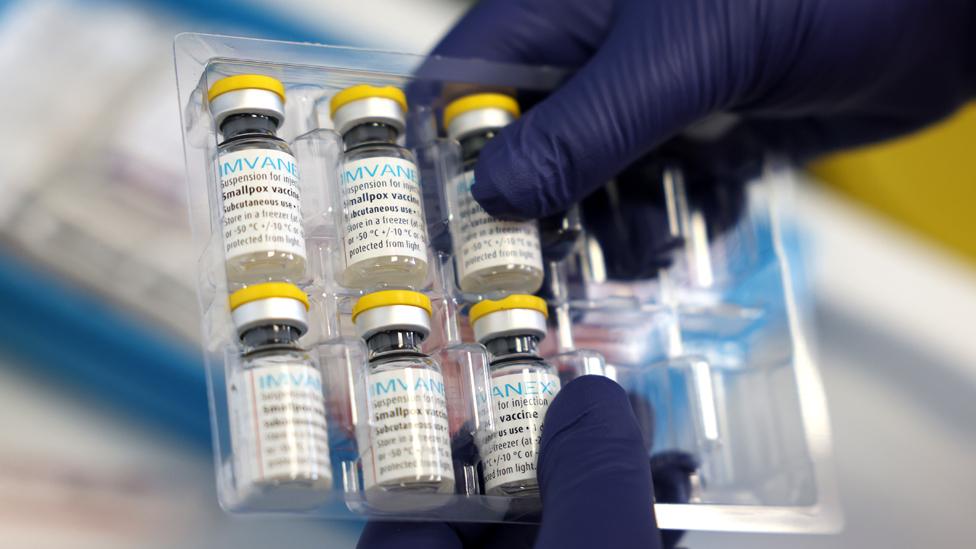Monkeypox cases declining - particularly in London
- Published

More than 33,000 doses of a vaccine which protects against monkeypox have been given out
New cases of monkeypox appear to be reducing with just 20 people a day becoming infected, UK health officials say.
In a report on the virus, they say the epidemic in London has declined since mid-July and is now the same size as in the rest of the country.
UK vaccine supplies are set to run out until a new delivery arrives sometime in September.
Anyone with monkeypox symptoms is asked to avoid meeting friends or having sex.
Dr Meera Chand, director of clinical and emerging infections at the UK Health Security Agency (UKHSA), said although the outbreak was slowing, cases were still being detected in all regions of England.
"We ask that everyone checks themselves for monkeypox symptoms, including rashes and blisters, particularly if you have had new sexual partners recently - in the UK or abroad," she said.
"If you are eligible for a vaccine, please wait to be called forward by the NHS and you will receive one as soon as supply is available in your area.
"We are working with the manufacturer to expedite delivery as quickly as possible."
People are being asked to stay at home if they have symptoms and contact NHS 111 of their local sexual health service for advice.
A total of 3,195 people have had monkeypox in the UK since the epidemic started in May, with most cases seen in gay and bisexual men.
However, anyone who comes into close contact with someone who has monkeypox could potentially get the virus.
The UKHSA said more than 33,000 doses of the smallpox vaccine - which also gives good protection against monkeypox - have been given out.
The vast majority have gone to men who have sex with men.
Around 1,700 doses have been given to healthcare workers treating people with monkeypox and another 1,600 have gone to close contacts of those infected.
In late June and early July, around 50 new cases of monkeypox were being found every day in England, and this has now fallen to 20, the latest report says.
Health officials say there is still "very high uncertainty" about the epidemic but they estimate that outside of London growth in cases has been flat since late-July and is now a similar size to the London epidemic.
Monkeypox spreads through close skin-to-skin contact and also when someone touches fabrics - such as clothing, bedding, or towels - which have been used by someone with the virus.
Around 35,000 cases have now been confirmed around the world, with most in Europe and north and south America. There have been 12 deaths linked to the outbreak.
Monkeypox was declared a global public health emergency by the WHO in July.
The first case of human-to-dog transmission of monkeypox occurred in Paris recently and was reported in The Lancet., external
World health experts said the jump to pets was not unexpected, but warned of the risk of the virus getting into animals in countries which don't normally have monkeypox.
They urged people to isolate from their pets if they had monkeypox and dispose of household rubbish carefully in order to prevent any spread to other animals.
- Published5 August 2022

- Published11 August 2022

- Published11 August 2022

- Published15 August 2022
